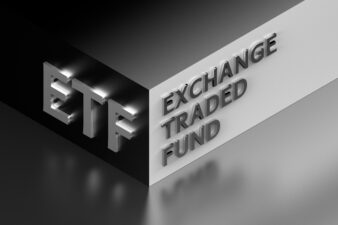Maple Leaf (TSX:MFI) is a producer of food products that include prepared meats, ready-to-cook meals, ready-to-serve meals, value-added fresh pork and poultry and plant protein products. The company’s two segments are meat protein group and plant protein group.
The company reports a market capitalization of $3.19 billion with a 52-week high of $25.82 and a 52-week low of $21.87
Intrinsic price
Based on my calculations using a discounted cash flow (DCF) valuation model, I determined that Maple Leaf has an intrinsic value of $19.81 per share at writing.
Assuming less than average industry growth, the intrinsic value would be $19.08 per share; higher than average industry growth would result in an intrinsic value of $20.61 per share.
At the current share price of $25.59, I believe that Maple Leaf is substantially overvalued. I would advise investors to stay away from Maple Leaf for now, but add it to their watch list and wait for an opportunity to buy shares at less than intrinsic value.
Maple Leaf has an enterprise value of $2.85 billion, representing the theoretical price a buyer would pay for all of Maple Leaf’s outstanding shares plus its debt.
One of the good things about Maple Leaf is its low leverage with debt at 10.8% of total capital versus equity at 89.2% of total capital.
Financial highlights
For the nine months ended September 30, 2019, the company reports a strong balance sheet with $1.1 billion in retained earnings.
This is a good sign for investors, as it suggests the company’s surpluses in previous years have been reinvested to fuel business growth.
Maple Leaf reports cash and equivalents of $71 million with $74 million in current portion of debt. The company does not have enough cash on hand to cover its short-term liabilities; however, this is not a concern given its $1.3 billion revolving line of credit that is undrawn as at September 30, 2019.
Overall revenues are up materially from $2.6 billion in 2018 to $2.9 billion in 2019 (+12.5%), which is offset by an increase in COGS from $2.2 billion to $2.5 billion (+12.8%).
Increased SG&A coupled with increased interest expenses have resulted in pretax income of $63 million (down from $123 million from 2018).
From a cash flow perspective, the company increased its capital expenditure spending from $128 million in 2018 to $186 million in 2019 (+45%), which indicates the company is investing in its growth. This is a good sign for investors, as assets are used to generate revenue.
Even though debt accounts for a mere 10.8% of total capital, I would like to see management implement a debt management strategy, as the company made draws on its long-term debt for $100 million in 2019 and $163 million in 2018 with no repayments.
Foolish takeaway
Investors looking to buy shares of a meat processing and packaging company should avoid Maple Leaf. At its current share price of $25.59 compared to its intrinsic value of $19.81, I believe its share price is overvalued.
That said, Maple Leaf has solid financials with positive retained earnings, increasing revenues and continued profitability. My concern, financially speaking, are the draws on long-term debt of $100 million in 2019 and $163 million in 2018 with no evidence of payments to offset the draws.
If Maple Leaf dips below intrinsic value, I believe it would make for a good investment.







